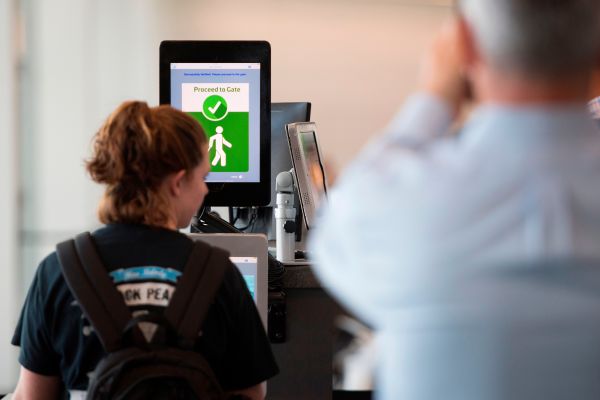Homeland Security has confirmed it will not expand face recognition scans to U.S. citizens arriving and departing the country, days after it emerged the agency proposed making the scans for citizens mandatory.
The department, whose responsibility is border protection and immigration checks, said in a government filing that it wanted to “amend the regulations to provide that all travelers, including U.S. citizens, may be required to be photographed upon entry and/or departure.”
The American Civil Liberties Union criticized the move, saying it had “profound privacy concerns” despite promises from the government that it had no plans to expand the face recognition checks to Americans.
Currently, U.S. citizens are allowed to opt-out of face recognition scans at the airport, but foreign nationals and visitors are required to have their faces scanned when arriving or leaving the U.S., where the systems are installed.
Homeland Security says the scans are to help crack down on illegal immigration and visa overstays.
A spokesperson for Customs and Border Protection, which filed the proposal, said the agency has “no current plans to require U.S. citizens to provide photographs upon entry and exit from the United States,” and that it “intends to have the planned regulatory action regarding U.S. citizens removed from the unified agenda next time it is published.”
The agency spokesperson said CBP “initially considered” including U.S. citizens in its face recognition checks at airports and other ports of entry “because having separate processes for foreign nationals and U.S. citizens at ports of entry creates logistical and operational challenges that impact security, wait times and the traveler experience.”
“Upon consultation with Congress and privacy experts, however, CBP determined that the best course of action is to continue to allow U.S. citizens to voluntarily participate in the biometric entry-exit program,” the spokesperson noted.
Just yesterday, CBP said it met with privacy experts and that it was “committed to keeping the public informed about our use of facial comparison technology,” said CBP’s John Wagner.
A source with knowledge of the meeting said privacy advocates warned the government against expanding face recognition scans for U.S. citizens, citing privacy risks.
Jay Stanley, a senior policy analyst at the American Civil Liberties Union, said: “This proposal never should have been issued, and it is positive that government is withdrawing it after growing opposition from the public and lawmakers.”
“But the fact remains that the agency attempted to renege on what was already an insufficient promise, and has not yet committed to ensuring that immigrants will not be forced to submit to this surveillance. Homeland Security’s plans to spread face recognition surveillance nationwide remain alarming, especially given the lack of congressional authorization and sufficient safeguards, the government’s past security failures, and unanswered questions about the technology’s effectiveness, bias, and broader societal implications,” he said.
“The government cannot be trusted with this surveillance technology, and Congress should put the brakes on its use,” said Stanley.
